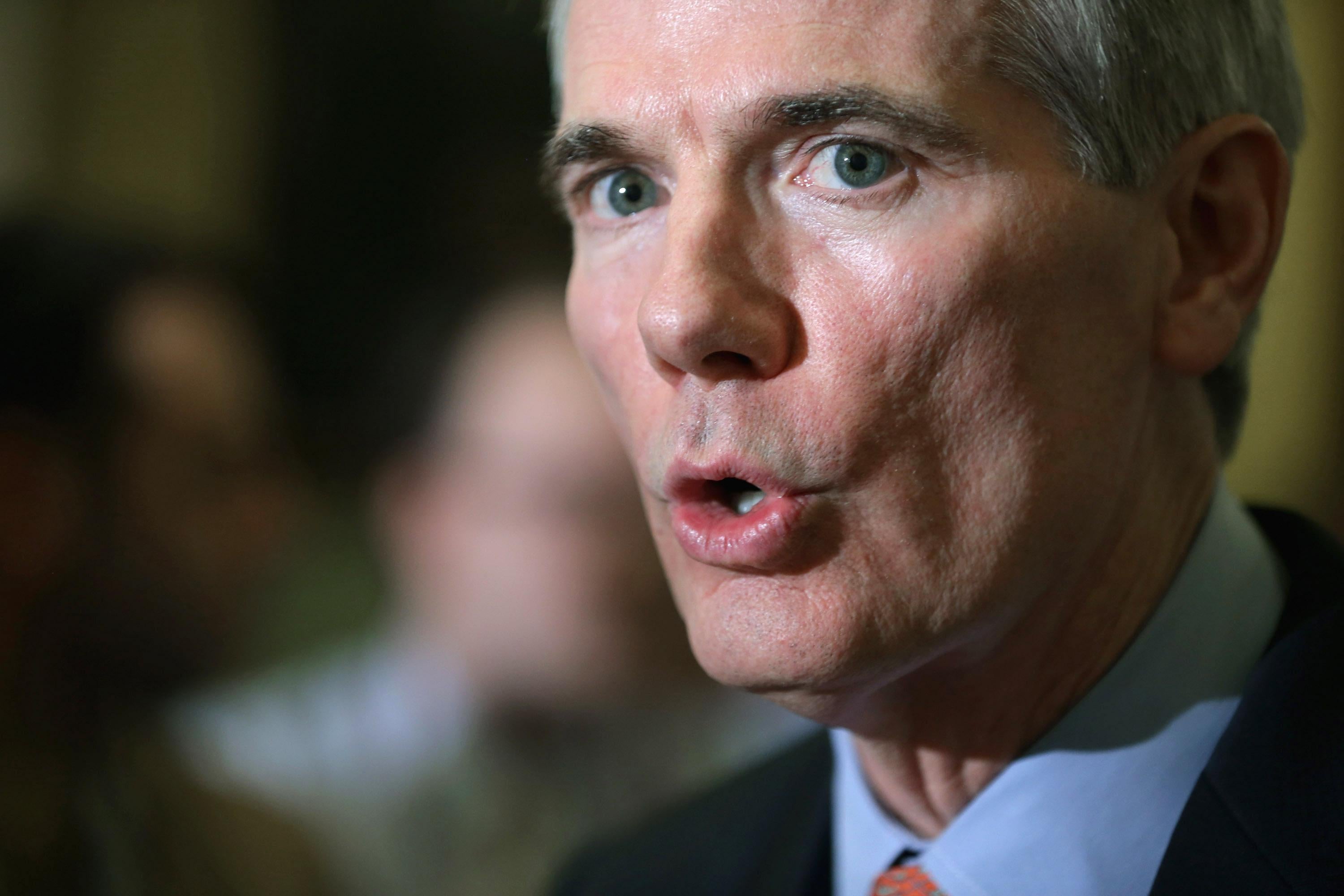My piece from last night traced the three-odd-year history of government-by-debt limit, pronouncing its end for the rest of 2014 (no huge risk there) and maybe for even longer. But you’ll notice that Lindsey Graham, not ever seen as a radical Republican, appears in the piece as a very, very concerned observer who wishes the House GOP could agree to demand something in the debt limit. Maybe an infrastructure bank?
This is part of the new normalcy, same as the old normalcy—the debt limit restored as something the opposition votes against, because it can, while it criticizes the big spending of the party in power. But is there more to it?
“I suppose that’s the most John Boehner could do,” shrugged Ohio Sen. Rob Portman when asked about the “clean” debt bill. “I suppose he tested other ideas. I was always focused on a very simple solution—do some spending reform as part of the debt limit. It’s the only way Congress has ever put spending reform in place. Every significant spending reform of the last 30 years was through the debt limit.”
North Carolina Sen. Richard Burr, who had loudly and frequently criticized the government shutdown strategy of 2013, sounded a bit like Portman. “Most of us said from the beginning, we don’t want to monkey around with the full faith and credit of the U.S. government,” he said. “By the same token, there’s no reason that you can’t find other solutions at the same time, whether they’re incorporated or they ride separately.”
There’s just a pervading sense that, but for the shutdown, crisis economics might still be with us.
“The shutdown had a lot to do with it,” said Arizona Sen. Jeff Flake. “Yeah. There was a piece yesterday about how those of us concerned with the deficit have not had a good couple of months. Now people are talking about undoing parts of the agreement it just did.”
